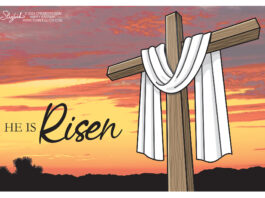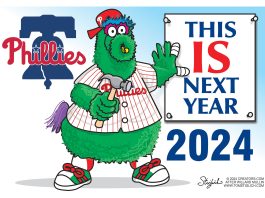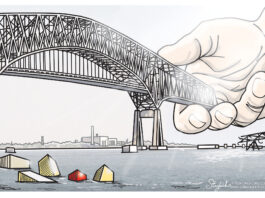One of the worst aspects of racism is our denial that it exists. Not every white American is a racist, but each of us was faced with a binary choice growing up. We either fought to overcome the seeds of racism that were planted deeply within our own families or we surrendered to it. There is no middle ground. You can’t be a half-racist any more than you can be half-pregnant. And even those of us who think that we’ve overcome racism sometimes have to overcome the residual racism within us.
As a second-generation Italian-American, my personal struggle was recently brought home by an article a friend forwarded me from the New York Times. The article — HOW ITALIANS BECAME WHITE, by Brent Staples — details a fact often conveniently overlooked by members of my own ethnic group. Italian-American immigrants suffered from some of the same prejudices against African-Americans, much of that prejudice was based on skin color. Less acknowledged is that Italians themselves discriminated against darker-skinned members of their own ethnic group. I experienced that within my own family.
Most Italian-Americans my age can remember that much was made over which area of Italy your parents, or in my case, my grandparents, were born. My mother and father, though born in America, proudly identified themselves with areas of the old country. Though blue-eyed with blond hair, my mother with a pale complexion, often boasted that she was Napolitano (she pronounced it “Napledon”). My father, who was dark-skinned, boasted that he was Sicilian, or “Siggy” (soft “g”).
Mom often insisted that her origins were superior. Dad mostly just listened. Mom claimed that Sicilians were at the bottom of the racial ladder among Italians. They had no culture, she claimed, unlike Napolitanos. They were dirty and ignorant. Gangsters, even. Dangerous. And with their dark skin, they might as well be black. The New York Times article reveals that mom’s attitude was the prevailing view of Sicilians at that time in America. Sicilians were the black Italians.
I’m pretty sure that dad identified himself as Sicilian, even though only his father was from that region of Italy, because he liked the aura of danger that came with it. He thought it made him more interesting. Friends tell me that the same discussions were occurring at that time in their own households. The irony is that mom and dad and many others who debated the “superiority” of their ethnic and racial origins never saw Italy in their own lifetimes. To a young kid growing up, the arguments seemed comically absurd. A joke. But in retrospect, they were also an indication of how deep racial prejudice ran. What mom and others didn’t realize was that her disparagement of Sicilians mirrored the attitude of white America toward the entire group of immigrant Italians that poured into this country. Incidents of violence against Sicilians in America bear a distinct resemblance to those that were perpetrated against blacks in the South. Even today, Americans of Sicilian descent are often stereotyped as Mafioso. While THE GODFATHER is revered as a film classic, even by Italians, it has also reinforced the image of Sicilian-Americans as one big crime family. Mom’s attitude about Sicilians lives on. A sad fact of American history is that once a group is accepted — the New York Times article describes it as becoming “white,” that group turns its own prejudice against other immigrants. Logic would dictate that ethnic and racial groups would bond over similar experiences of bias against them, but that’s not generally the case. Too many of us vent against other non-whites. Many Italians, denigrated as “wops” and “dagos,” call blacks “mulignans” (Italian for eggplant). Likewise, Jews scorned as “kikes” often scorn blacks as “schvartzes.” It’s as if we all need someone to beat up on. Some group to blame for our perceived gripes. People we feel are dirty and crime-ridden as we were once perceived. Folks we want to keep out. Build a wall to protect ourselves from. It’s as if our own achievements are not enough to sustain us. We also need scapegoats. Our dirty little secret is that we need those scapegoats as much as we claim to need heroes. Even though we came late to America, we need to feel that we’re more American than groups who were already toiling here.
Here in South Philadelphia, some of us are no better than the rest of Americans. We’ve surrendered to the myths of racial prejudice too easily. Our rationalizations trip too easily from our tongues. We ignore the fact that most of the immigrants coming here are coming here for the same reason our parents and grandparents came here — to live a better life. They flee oppression. They flee the ravages of poverty. We cloak our opposition in legalese. Rules are rules. But we show our hypocrisy as we embrace efforts to halt legal immigration. “They” threaten our safety, we claim. We’re wrong. “They” commit statistically fewer crimes than our own citizens. “They” don’t share our culture or our values, we say, forgetting the same charges were made against our own families when they arrived. “They’re” not as white as us, but we were once not as white as those already here.
We refuse to see the truth. “They” are who we once were. ••
Tom Cardella co-hosts MONDAY NIGHT KICKOFF, streaming live on Oct. 29 at 6 p.m. with guest Harold Carmichael on wbcb1490sports.com and rebroadcast Tuesdays on 610 AM ESPN RADIO.




